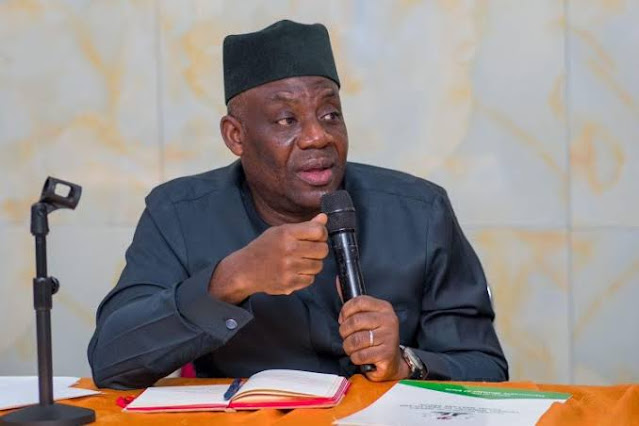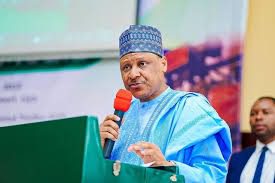On Monday, August 25, 2025, the Federal Government of Nigeria launched a groundbreaking digital portal designed to overhaul the registration, certification, and professional development processes for teachers across the country. This ambitious initiative, unveiled in a high-profile ceremony in Abuja, is poised to transform the education sector by enhancing the quality, accountability, and professionalism of Nigeria’s teaching workforce. Spearheaded by the Ministry of Education and the Teachers Registration Council of Nigeria (TRCN), the portal represents a bold step toward aligning Nigeria’s education system with global standards while addressing long-standing inefficiencies in teacher management. This report provides an in-depth exploration of the initiative, its objectives, implementation strategies, and broader implications for Nigeria’s education landscape.
The Context: Addressing Nigeria’s Educational Challenges
Nigeria’s education sector has faced significant challenges over the years, including inadequate teacher training, outdated certification processes, and a lack of comprehensive data on the teaching workforce. These issues have contributed to disparities in educational outcomes, particularly in underserved rural and urban areas. The quality of teachers, widely recognized as a critical determinant of educational success, has been a focal point of reform efforts. However, bureaucratic bottlenecks, manual processes, and limited access to professional development opportunities have hindered progress.
The Federal Government, under the leadership of President Bola Tinubu, has prioritized education as a cornerstone of national development. Recognizing that no nation can rise above the quality of its teachers, the government has sought to modernize the education system through strategic investments in technology and human capital. The new digital portal is a flagship initiative in this broader agenda, aiming to streamline teacher management, enhance accountability, and ensure that educators are equipped to deliver high-quality instruction in classrooms across the country.
The Launch: A Vision for Transformation
The official launch of the digital portal took place at a well-attended event in Abuja, presided over by the Minister of Education, Mr. Tunji Alausa. The ceremony brought together key stakeholders, including education policymakers, TRCN officials, representatives of teachers’ unions, and advocates for inclusive education. In his keynote address, Minister Alausa described the portal as a “technological upgrade” and a reaffirmation of the government’s commitment to supporting Nigerian teachers, whom he referred to as the “backbone of the nation’s education system.”
“This initiative goes beyond technology. It represents an investment in the men and women who shape our classrooms,” Alausa declared. He emphasized that the portal is not merely a tool for administrative efficiency but a strategic intervention to elevate the teaching profession and, by extension, the quality of education in Nigeria. The minister outlined the portal’s multifaceted functionality, which includes teacher registration, licensing, certificate renewal, examination scheduling, professional development tracking, and the maintenance of a comprehensive national database on teacher performance and career progression.
The portal is designed to serve as a one-stop platform, eliminating the need for teachers to navigate multiple bureaucratic processes. By centralizing these functions, the government aims to reduce delays, enhance transparency, and createré
System: Strategic Pillars of the Reform
Minister Alausa outlined five strategic pillars underpinning the reform: professionalization, digitalization, accountability, equity, and alignment with global standards. These pillars provide a framework for understanding the comprehensive nature of the initiative and its potential to transform Nigeria’s education sector.
Professionalization: The portal ensures that teaching is recognized as a profession with high standards. By requiring all teachers, whether in public or private institutions, to undergo ethical clearance and criminal record verification, the government is taking steps to safeguard the moral integrity of classrooms. This measure is described as protective rather than punitive, aimed at ensuring that only qualified and trustworthy individuals are entrusted with shaping young minds.
Digitalization: The transition from manual, paper-based processes to a fully digital platform marks a significant leap forward. Teachers can now complete registration, access examination results, and download certificates online, eliminating long-standing delays and inefficiencies. The TRCN’s service-level agreement, which guarantees the release of Professional Qualifying Examination (PQE) results within one week, further underscores the commitment to efficiency.
Accountability: The portal introduces mechanisms to hold teachers accountable for their performance and professional conduct. The national database will track teacher performance and career progression, enabling the government to monitor compliance with certification requirements and identify areas for improvement.
Equity: By making the portal accessible to teachers in both urban and rural areas, the initiative seeks to address disparities in access to certification and professional development. This focus on equity ensures that all teachers, regardless of their location, have the opportunity to meet professional standards.
Alignment with Global Standards: The reform aligns Nigeria’s teaching workforce with international benchmarks by streamlining the PQE curriculum and introducing tools like the AI-powered lesson plan generator. These measures aim to equip teachers with the skills and resources needed to deliver world-class education.
Implementation and Key Features
The Registrar of the TRCN, Mrs. Ronke Soyombo, provided detailed insights into the portal’s implementation and its transformative potential. As part of her 100-day action plan to digitize the council’s operations, the portal addresses longstanding challenges in the certification process. Previously, teachers faced delays in accessing examination results and obtaining certificates due to manual processes. The new system allows teachers to register, view results, and print certificates online, significantly reducing turnaround times.
One of the portal’s standout features is the streamlined PQE curriculum, which has been reduced from 23 subjects to five core areas: foundational mathematics, literacy, digital literacy, safeguarding, and pedagogy. This restructuring ensures that the examination focuses on essential competencies, making it more relevant and manageable for teachers. Successful candidates can now download their certificates immediately after results are released, a process that the TRCN has committed to completing within one week under a new service-level agreement.
Another innovative feature is the planned launch of an AI-powered lesson plan generator in October 2025. This tool will provide teachers with contextualized instructional materials tailored to Nigeria’s diverse classrooms. By offering ready-to-use lesson plans, the generator aims to enhance classroom engagement and reduce the burden on teachers to create materials from scratch. This initiative is particularly significant in rural areas, where access to high-quality teaching resources is often limited.
The portal also introduces a transparency feature that allows parents to verify whether their child’s teacher is properly registered with the TRCN. This measure empowers communities to hold educators accountable and ensures that only certified professionals are employed in schools. Mrs. Soyombo projected that the portal’s efficiency and accessibility would increase the number of certified teachers by at least 50%, a significant step toward addressing the shortage of qualified educators in Nigeria.
Inclusive Education and Accessibility
In a goodwill message delivered at the launch, the Senior Special Assistant to President Bola Tinubu on Special Needs and Equal Opportunities, Mr. Mohammed Isa, emphasized the importance of inclusive education. He urged the Ministry of Education to incorporate accessibility features such as screen readers, sign language, and digital braille into the portal to ensure that teachers with disabilities can fully participate in the system. This call for inclusivity aligns with the government’s broader commitment to equity and ensures that the portal serves all teachers, regardless of their physical or sensory abilities.
The focus on accessibility reflects a growing recognition of the need to create an inclusive education system that accommodates diverse learners and educators. By integrating these features, the government aims to set a precedent for other sectors, demonstrating that digital transformation can be equitable and accessible to all.
Broader Implications for Nigeria’s Education Sector
The launch of the digital portal marks a turning point for Nigeria’s education sector. By addressing systemic inefficiencies and prioritizing teacher quality, the initiative has the potential to elevate educational standards across the country. The portal’s emphasis on professionalization ensures that teaching is treated as a respected profession, with clear standards and accountability mechanisms. This, in turn, is expected to improve the quality of instruction in classrooms, benefiting millions of students.
The digitalization of teacher management processes also positions Nigeria to compete in a globalized world. By aligning with international benchmarks, the government is preparing its teaching workforce to meet the demands of a 21st-century education system. The introduction of tools like the AI-powered lesson plan generator demonstrates a forward-thinking approach, leveraging technology to enhance teaching and learning outcomes.
Moreover, the portal’s focus on equity addresses longstanding disparities in access to certification and professional development. Teachers in rural areas, who have historically faced barriers to certification, will benefit from the portal’s accessibility and streamlined processes. This inclusivity is critical to ensuring that all students, regardless of their location, have access to qualified educators.
The transparency feature, which allows parents to verify teacher certification, fosters greater community engagement and trust in the education system. By empowering parents to hold schools accountable, the government is building a culture of transparency and accountability that could have far-reaching effects beyond education.
Challenges and Considerations
While the digital portal represents a significant advancement, its implementation is not without challenges. One key concern is the digital divide, particularly in rural areas where access to internet connectivity and digital devices may be limited. The government will need to invest in infrastructure, such as internet access points and computer labs, to ensure that teachers in remote areas can use the portal effectively.
Another challenge is the need for ongoing training to familiarize teachers with the portal’s features. Many educators, particularly those in older age groups or with limited technological literacy, may require support to navigate the system. The TRCN and Ministry of Education must prioritize capacity-building initiatives to ensure that all teachers can take full advantage of the portal.
Data security and privacy are also critical considerations. The national database will store sensitive information about teachers, including personal details and performance metrics. Robust cybersecurity measures must be in place to protect this data from breaches and misuse.
Finally, the success of the portal will depend on sustained political and financial commitment. The government must allocate adequate resources to maintain and upgrade the system, ensuring that it remains functional and relevant in the long term.
The Way Forward
To maximize the impact of the digital portal, the Federal Government must adopt a multi-pronged approach. First, it should launch a nationwide awareness campaign to educate teachers about the portal’s features and benefits. This campaign could include workshops, tutorials, and partnerships with teachers’ unions to ensure broad adoption.
Second, the government should collaborate with telecommunications companies and international development partners to expand internet access in rural areas. Mobile-friendly versions of the portal could also enhance accessibility for teachers using smartphones.
Third, the TRCN should establish a feedback mechanism to gather input from teachers and stakeholders about the portal’s functionality. This feedback will be essential for identifying areas for improvement and ensuring that the system meets the needs of its users.
Finally, the government should integrate the portal with other education initiatives, such as curriculum reforms and teacher training programs. By creating a cohesive ecosystem of reforms, the government can maximize the portal’s impact on educational outcomes.
Conclusion
The launch of the digital portal for teacher registration, certification, and professional development is a landmark achievement for Nigeria’s education sector. By addressing inefficiencies, enhancing accountability, and prioritizing equity, the initiative has the potential to transform the teaching profession and elevate educational standards across the country. The portal’s innovative features, such as the AI-powered lesson plan generator and transparency tools, position Nigeria as a leader in educational reform in Africa.
While challenges remain, including the digital divide and data security concerns, the government’s commitment to professionalization and digitalization sets a strong foundation for success. With sustained investment, stakeholder engagement, and a focus on inclusivity, the portal can empower teachers to deliver high-quality education and prepare Nigeria’s students for a competitive global future. This initiative is not just a technological upgrade; it is a bold investment in the men and women who shape the nation’s classrooms and, by extension, its future.






